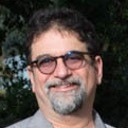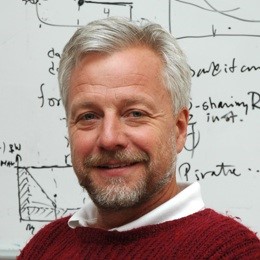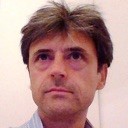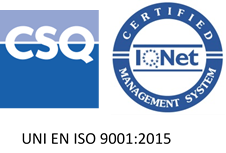
it_IT (361)
Categorie figlie

Formazione (321)
Tel: +39 0862.452.401
mail: corsi@ssgrr.com

Seminari e Eventi (1)
Un'occasione di confronto con gli esperti di rilievo nazionale e internazionale.
Sono, generalmente, strutturati in modo da dare ai partecipanti la possibilità di scegliere un percorso individuale tra diverse sessioni didattiche.

Laboratori (0)
I nostri uffici e i laboratori che, per dimensioni e caratteristiche, sono tra i più ricchi e completi nel panorama nazionale, sono all’Aquila.
Usiamo questa risorsa preziosa nella maggior parte dei corsi tecnici e sempre nella preparazione agli esami per conseguire le certificazioni Cisco e Juniper. Sono il nostro strumento didattico di punta. Oltre 300 apparati di rete (Router, Switch per LAN e Data Center, Firewall, Access Point Wireless, telefoni IP, etc.), con più di 50 tra Server e Personal Computer per dare ai partecipanti dei nostri corsi la possibilità di mettere in pratica quanto apprendono in aula.
Accessibilità
I laboratori sono a L’Aquila, ma è possibile accedere da qualunque luogo, basta avere una connessione internet per raggiungere la consolle degli apparati “da remoto” e avere le stesse funzionalità di quando siamo in sede. In questo modo possiamo:
· realizzare corsi tradizionali teorico/pratici da qualunque aula dotata di PC e di una connessione Internet veloce;
· svolgere sessioni pratiche di laboratorio nell’ambito di attività di formazione on-line, con l’assistenza di tutor e di esperti;
· fornire, a singoli o a gruppi di studenti, l’accesso agli apparati per la preparazione, anche non assistita, agli esami di certificazione Cisco e Juniper.
I nostri allievi possono, in scenari di rete uguali a quelli reali - e da qualunque luogo - esercitarsi, fare configurazioni, sviluppare, effettuare il troubleshooting.
Le risorse a disposizione dei partecipanti
Quando l’attività si svolge in aula, la classe è organizzata in piccoli gruppi, preferibilmente di due persone. Ogni gruppo ha a disposizione il proprio ambiente operativo dedicato (POD), formato da tutti gli apparati necessari a provare e verificare le configurazioni descritte teoricamente dal docente. Ciascun POD può essere costituito, in funzione del corso, da un numero variabile tra 3 e 14 apparati di rete, sui quali il gruppo di studenti lavora in modo coordinato.
Visualizza articoli ...
Distributed memory programming and algorithms
Si è svolta a luglio la 15esima edizione della International Summer School on Advanced Computer Architecture and Compilation for High-Performance and Embedded Systems (ACACES 2019), organizzata da HiPEAC in collaborazione con TETRAMAX Innovation Action e Eurolab4HPC . Come per le edizioni precedenti, Reiss Romoli ha avuto un ruolo chiave nella organizzazione e gestione dell’evento.
A questa edizione hanno partecipato circa 220 ricercatori provenienti da molte delle università europee ed esperti del settore, con docenti provenienti da rinomate università americane e da industrie di punta del settore.
Durante la Summer School i partecipanti seguono 4 corsi, scelti tra i 12 del programma, oltre a un Keynote Speach e a un Invited Talk.
Nell’edizione 2019 di ACACES il prof. Scott Baden, della University of California, San Diego, ha tenuto un corso su:
Distributed memory programming and algorithms
Distributed memory computers provide bandwidth, processing, and memory scaling capabilities beyond what can be achieved via coherent shared memory. An important consideration in using distributed memory computers effectively is to keep communication costs low, since processing speeds are outpacing communication rates.
Two important models for programming distributed memory are message passing and RMA (Remote Memory Access). RMA comes in many forms, and benefits from global address space communication, that is generally supported by modern network hardware. RMA is employed in PGAS (Partitioned Global Address Space) models which adds global pointers, and optionally, remote procedure call.
These two capabilities play an important role in reducing communication costs, especially for fine grained and irregular communication patterns.
The course has covered message passing and PGAS programming via two libraries, respectively, MPI and UPC++.
The goal of the lectures has been to build a solid grounding in distributed memory programming and the performance trade-offs in efficient implementation.
Algorithmic studies have been presented, and hybrid hierarchical models have been also discussed, which compose distributed memory programming with programming at the node, e.g. multithreading.
The emphasis has been on maintaining low communication costs, as opposed to optimizing computational performance, which is another topic for study.
Scott Baden, Lawrence Berkeley National Laboratory, USA
|
Scott B. Baden is Group Lead of the Computer Languages and System Software Group in the Computational Research Division at Lawrence Berkeley National Laboratory, and Adjunct Professor of Computer Science and Engineering at the University of California, San Diego, where he was a faculty member for 27 years. He earned his Ph.D. from the University of California, Berkeley in 1987. His research interests are in high performance and scientific computation: domain specific translation, abstraction mechanisms, programming models, run times, and irregular problems. |
 |
Different ways to run a startup
Si è svolta a luglio la 15esima edizione della International Summer School on Advanced Computer Architecture and Compilation for High-Performance and Embedded Systems (ACACES 2019), organizzata da HiPEAC in collaborazione con TETRAMAX Innovation Action e Eurolab4HPC . Come per le edizioni precedenti, Reiss Romoli ha avuto un ruolo chiave nella organizzazione e gestione dell’evento.
A questa edizione hanno partecipato circa 220 ricercatori provenienti da molte delle università europee ed esperti del settore, con docenti provenienti da rinomate università americane e da industrie di punta del settore.
Durante la Summer School i partecipanti seguono 4 corsi, scelti tra i 12 del programma, oltre a un Keynote Speach e a un Invited Talk.
Per l’edizione 2019 di ACACES l’Invited Talk è stato tenuto dal prof. Erik Hagersten dell’Università di Uppsala, che ha parlato di:
Different ways to run a startup
All startups are different, and there is no magic sauce or formula that will guarantee success. Running a traditional startup is also VERY different from running a successful research project. There are, of course, new areas to understand, such as law, taxes, financing, investors, IP, business planning, validation, prototyping, production, marketing and sales. But not even the most basic areas of the research, such as the baseline systems, simulation methodologies and evaluation principles, may hold for a startup.
The most brilliant research ideas can lead to an unsuccessful startup if all areas are not understood and dealt with appropriately. The talk has been on prof. Hagersten ‘s experience in running two startups: one a more traditional startup that attempted to cover all the areas, and the other a scaled-down attempt to avoid most of the areas.
Erik Hagersten
|
Erik Hagersten has moved between industry and academia about ten times. He holds a professor chair in computer architecture at Uppsala University in Sweden since 1999. Prior to this, he was the chief architect for Sun Microsystem's high-end server engineering division in the US 1994-1999. In 2006 he founded Acumem AB, developing new modeling technology for multicore software optimisations. Acumem was acquired by Rogue Wave Software Inc. in 2010. In 2014 he founded Green Cache AB, developing new and efficient tag-less cache architectures. Green Cache was sold in 2018. At Uppsala, Erik has built up he Uppsala Architecture Research Team, UART (it.uu.se/research/group/uart) – one of the largest architecture research groups in Europe. UART performs research in fast performance modelling technology, compiler technology as well as more traditional computer architecture topics. He is a member of the Royal Swedish Academy of Engineering Sciences (IVA) since 2002. |
 |
The European Processor Initiative
Si è svolta a luglio la 15esima edizione della International Summer School on Advanced Computer Architecture and Compilation for High-Performance and Embedded Systems (ACACES 2019), organizzata da HiPEAC in collaborazione con TETRAMAX Innovation Action e Eurolab4HPC . Come per le edizioni precedenti, Reiss Romoli ha avuto un ruolo chiave nella organizzazione e gestione dell’evento.
A questa edizione hanno partecipato circa 220 ricercatori provenienti da molte delle università europee ed esperti del settore, con docenti provenienti da rinomate università americane e da industrie di punta del settore.
Durante la Summer School i partecipanti seguono 4 corsi, scelti tra i 12 del programma, oltre a un Keynote Speach e a un Invited Talk.
Per l’edizione 2019 di ACACES il Keynote Speach è stato tenuto dal prof. Mauro Olivieri, dell’Università La Sapienza di Roma, che ha parlato di:
Roadmap towards exascale: the European Processor Initiative
The historical evolution of supercomputing technologies and of embedded computing technologies exhibits a convergence of targets that narrows the gap between such traditionally distant worlds, and paves the way to an extraordinary future societal scenario.
As a consequence, the sovereignty on power-efficient high-performance microprocessor technology has become a transversal strategic capability for the advancement of modern nations. Europe, after years of delay with respect to other advanced regions of the world, has now started a set of initiatives to gain a new leading position in computing technology.
The first large investment in such direction is represented by the European Processor Initiative, a 4-year 26-partner project whose aim is to design and implement a roadmap for a new family of low-power European processors, for extreme scale computing and a range of emerging applications. The initial core drivers of the development are supercomputing, AI for Big Data, and future Automotive systems.
The opening keynote talk of the HiPEAC ACACES School 2019 has addressed the motivation, objectives, timeline, and technical insights of this unprecedented project, also highlighting the opportunities for further developments.
Mauro Olivieri, Sapienza University of Rome / BSC
|
Mauro Olivieri received the Master (Laurea) degree in electronics engineering and the Doctorate degree in electronics and computer engineering from the University of Genoa, Italy, where he was an assistant professor from 1995 to 1998. In 1998 he joined Sapienza University of Rome as an associate professor, teaching Digital Electronics and Digital Integrated System Architectures. His research interests are digital system-on-chip design, microprocessor core design, and digital nano-scale circuits. He was the scientific responsible for Sapienza University for 2 FP7 ENIAC JU European projects, 1 FP7 IAPP European project, 4 PRIN/FIRB national projects, 11 MIUR University Projects, and 8 industrial research contracts. He was a technical expert for the Italian Economic Development Ministry in the “Smart Specialization Strategy” project on the topic “Smart Cities/Communities”. He is an evaluator for the European Commission in the ECSEL Joint Undertaking. He is a visiting researcher at the Barcelona Supercomputing Center, Spain, within the European Processor Initiative project. He authored over 110 papers and a textbook in three volumes on digital VLSI design. He has been a TPC member of IEEE DATE and was General Co-Chair of IEEE/ACM ISLPED’15. He is a senior member of the IEEE. |
 |



